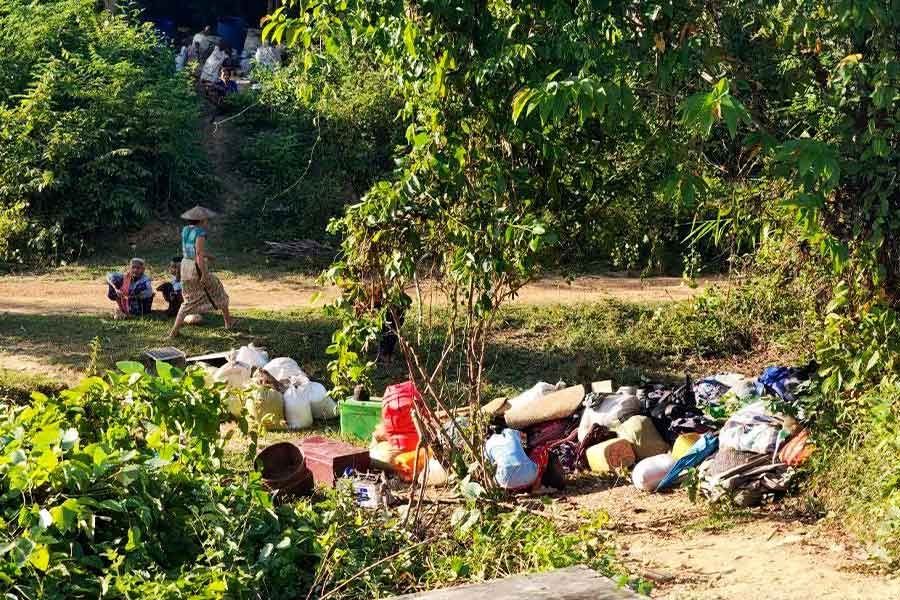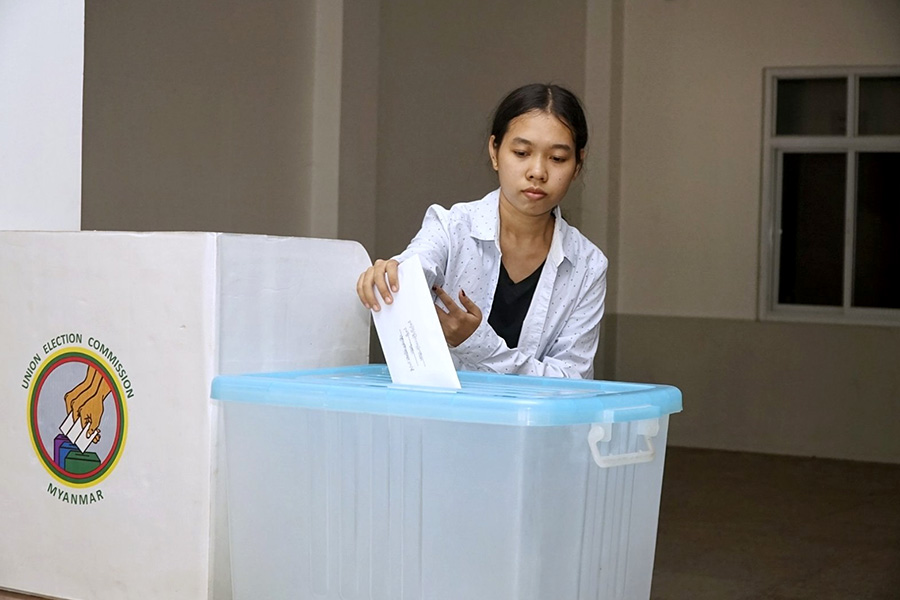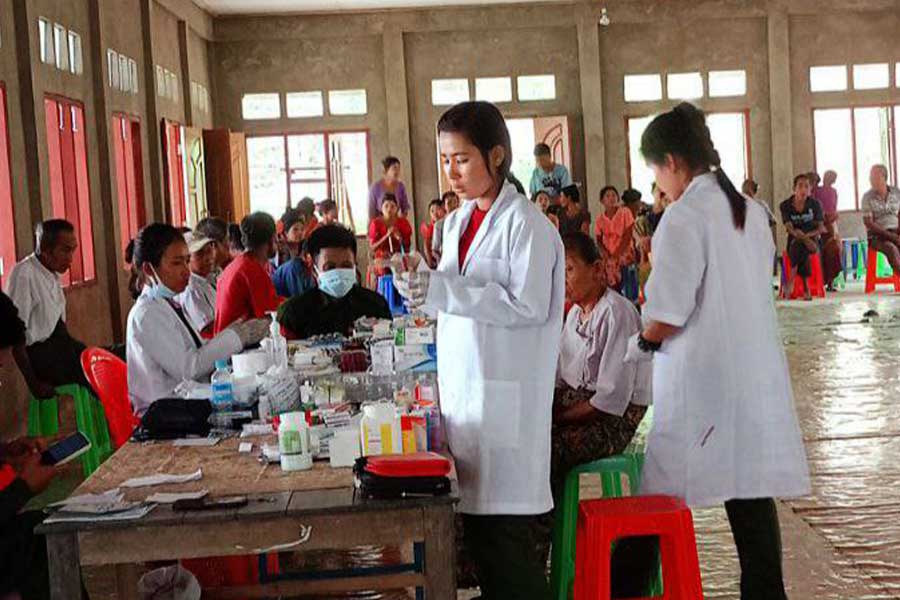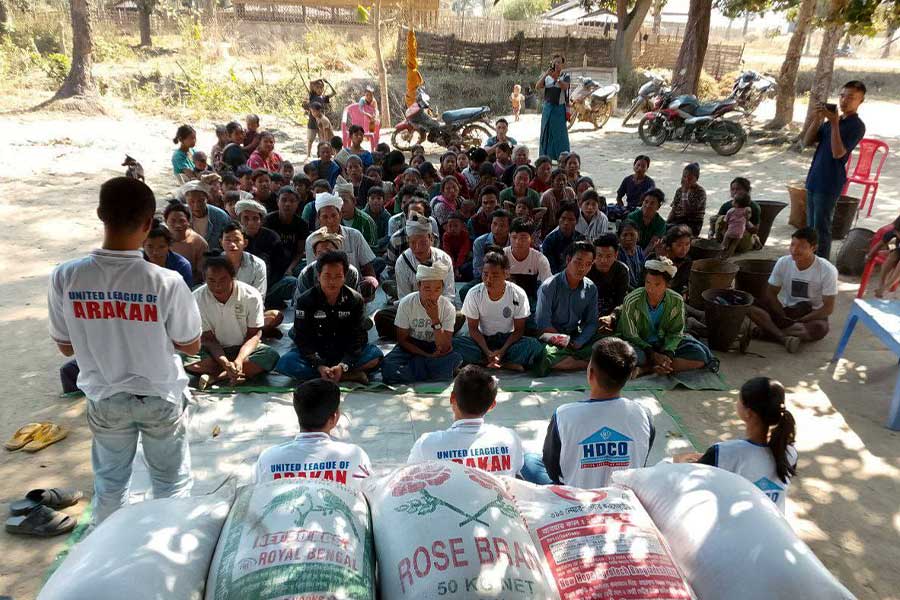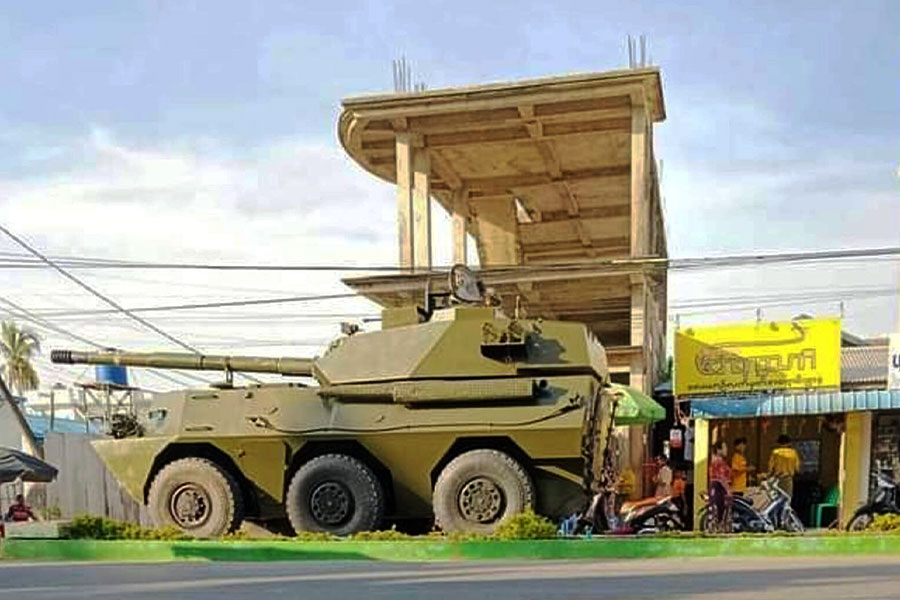- Kyaukphyu IDPs forced to flee again amid junta airstrikes and artillery attacks
- New Diplomatic Movements Between Bangladesh’s New Government and the Arakan Public Administration
- Junta claims over 24 million ballots cast in 2025 poll, cites strong youth turnout
- ULA expands HIV prevention, healthcare services for sex workers in AA-held areas
- Over 600 Mro villagers displaced in Maungdaw amid threats from ARSA, RSO
Military stands firm in defence of western Myanmar’s internet blackout
A Tatmadaw spokesperson said the leaking of sensitive information about military operations and positions was one of the primary reasons for an internet ban in parts of Arakan State that entered its second year over the weekend.
23 Jun 2020
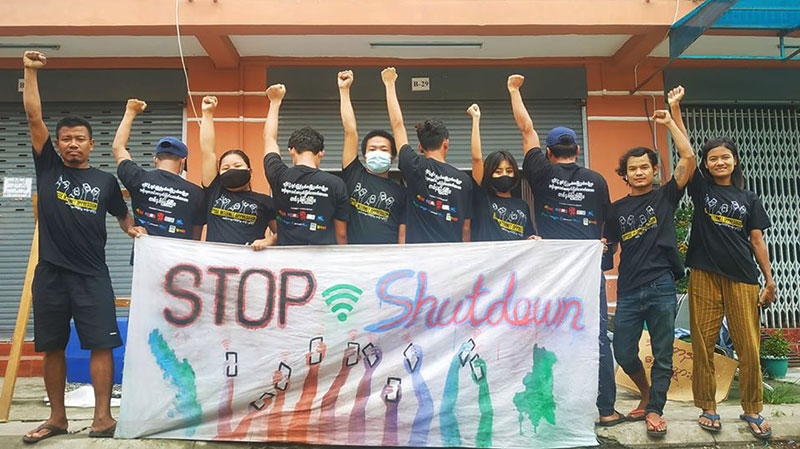
Hnin Nwe | DMG
23 June, Sittwe
A Tatmadaw spokesperson said the leaking of sensitive information about military operations and positions was one of the primary reasons for an internet ban in parts of Arakan State that entered its second year over the weekend.
The secretary of the Tatmadaw True News Information Team, Brigadier-General Zaw Min Tun, was speaking at a news conference in Nay Pyi Taw on June 23.
“Military information such as which military column is moving from what location to which area is uploaded on social media,” he explained. “And there is some information that makes people in the country and abroad misunderstand the Tatmadaw. So, we have to shut down the internet in the region for security reasons.”
Zaw Min Tun described the internet embargo as also intended to put a stop to the dissemination of extremist rhetoric, hate speech and misleading information, saying the Tatmadaw had no plan as yet to recommend a lifting of the ban to the government.
June 21 marked the one-year anniversary of the internet blackout, imposed in seven Arakan State townships and Chin State’s Paletwa Township.
The long-running deprivation of internet access has drawn much criticism over the past year, and this week Pyithu Hluttaw lawmaker U Pe Than piled on.
“In other countries, the internet is not shut down to avoid hate speech and [leaking of] military affairs. If such action is imposed [in other countries], the ban is lifted in short order. Our country has imposed the internet ban for a year. It should not happen,” said U Pe Than, who represents Myebon Township.
The government should resolve its issues using other approaches and should lift the internet ban, he suggested.
Ko Ye Wai, research manager of the free speech advocacy group Athan, said a democratic government is responsible for fully protecting people’s right to freedom of expression.
He added that internet access was an important accountability mechanism for a war-ravaged people vulnerable to potential human rights abuses.
“It is necessary to end the internet ban. People from war-affected areas are victims of the war. If they do not have internet access, they might face greater risk of losing their lives, property and prosperity. The main hope for the residents is to have internet access,” Ko Ye Wai said.
The government imposed its internet ban on Buthidaung, Maungdaw, Rathedaung, Ponnagyun, Kyauktaw, Myebon, Mrauk-U and Minbya townships in Arakan State, and Paletwa Township, on June 21, 2019. The ban was lifted in some of the townships on September 1, only to be reimposed on February 3. Maungdaw Township saw its internet access restored for a second time on May 2.
More than 1 million people across the eight affected townships in Arakan and Chin states remain without internet access.




